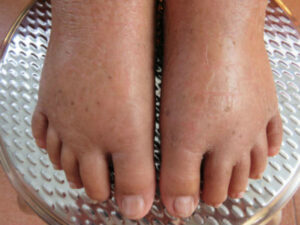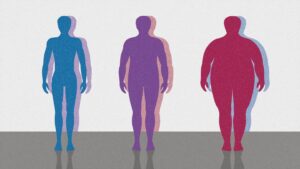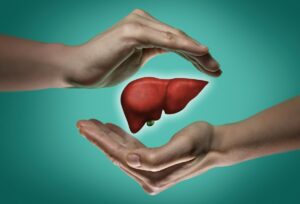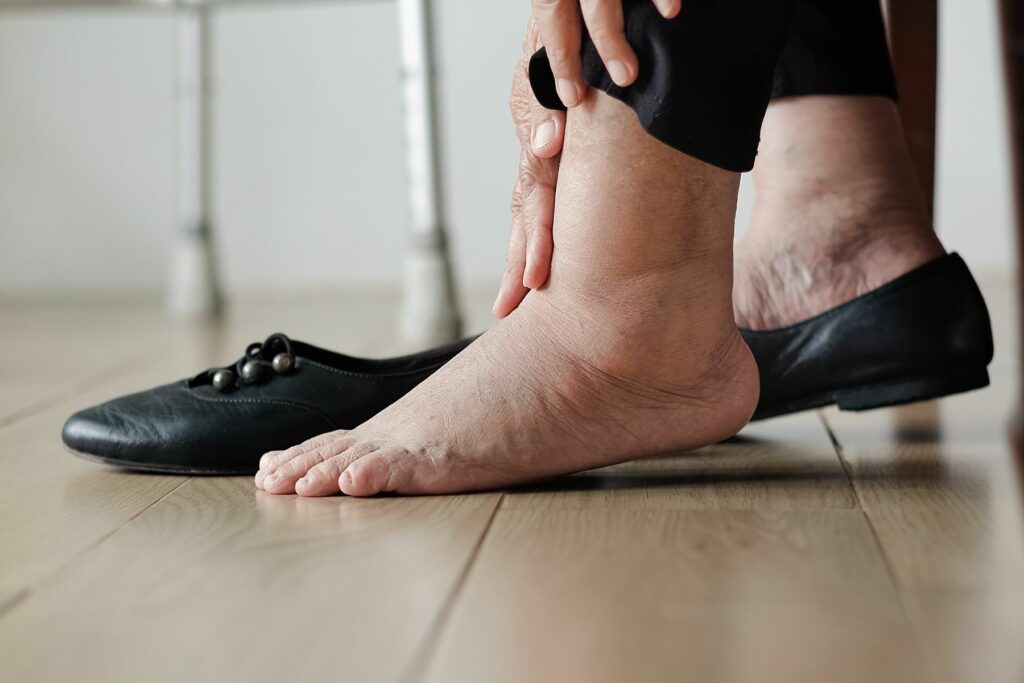Do you feel bloated and puffy all the time? If so, you may be dealing with fluid retention. This is a condition that occurs when excess fluid accumulates in the tissues of the body. It can cause swelling in the hands, feet, and ankles, as well as a feeling of heaviness and fatigue. Fluid retention can also lead to other health problems, such as heart failure and kidney disease. In this blog post, we will discuss 11 causes of fluid retention and what you can do to get rid of it!
Contents
What Is Fluid Retention?
 Fluid retention, also known as edema, is a condition in which excess fluid accumulates in the body. It is the condition in which the body’s tissues and cavities fill with fluid. The fluid may be lymph, blood, or other fluids. When edema occurs, the affected area of the body swells and becomes bloated.
Fluid retention, also known as edema, is a condition in which excess fluid accumulates in the body. It is the condition in which the body’s tissues and cavities fill with fluid. The fluid may be lymph, blood, or other fluids. When edema occurs, the affected area of the body swells and becomes bloated.
People with fluid retention often feel heavy and tired. They may also have difficulty breathing, as the excess fluid can put pressure on the lungs. In severe cases, edema can lead to heart failure or kidney disease. That is why it is important to seek medical help if you think you may have this condition. With that said, let’s take a look at some of the most common causes of fluid retention.
11 Causes Of Fluid Retention
Fluid retention can be caused by a variety of things. If you are facing this problem then you should also know about its causes as well. So, here are 11 possible causes of fluid retention:
High-salt diet
Fluid retention can be caused by a high-salt diet. When you eat foods that are high in salt, your body retains more water to dilute the salt. This can lead to swelling and bloating. If you are on a high-salt diet, you should try to reduce your intake of salt and eat more fruits and vegetables. There are certain fruits and vegetables that can help you get rid of excess fluid, such as celery and watermelon.
Not drinking enough water
Another possible cause of fluid retention is not drinking enough water. When you are dehydrated, your body tries to hold on to the little bit of water that it has. This is the reason why you feel bloated and puffy when you are dehydrated. Make sure to drink plenty of water throughout the day to prevent fluid retention. Especially during hot weather or when you are exercising, it is important to drink enough water to replace the fluids that you are losing.
Being overweight or obese
 Fluid retention can also be caused by being overweight or obese. When you are carrying around extra weight, your body has to work harder to pump blood to all of your cells. This can lead to a build-up of fluid in the tissues. If you are overweight or obese, you should try to lose weight through diet and exercise. This will help reduce the risk of fluid retention and other health problems.
Fluid retention can also be caused by being overweight or obese. When you are carrying around extra weight, your body has to work harder to pump blood to all of your cells. This can lead to a build-up of fluid in the tissues. If you are overweight or obese, you should try to lose weight through diet and exercise. This will help reduce the risk of fluid retention and other health problems.
Pregnancy
Pregnancy is another common cause of fluid retention. When you are pregnant, your body produces more fluids to support the growing baby. This can lead to swelling in the hands, feet, and ankles. If you are pregnant and dealing with fluid retention, you should talk to your doctor about how to manage it. You may need to wear special compression stockings or take diuretics to help reduce the swelling.
Certain medications
Certain medications can also cause fluid retention. These include hormones, such as progesterone and estrogen, as well as certain blood pressure medications. Steroids can also cause fluid retention. If you are taking any of these medications, you should talk to your doctor about the possibility of fluid retention. They may be able to prescribe a different medication that does not cause this side effect.
Heart failure
Heart failure is a condition in which the heart cannot pump blood properly. This can cause fluid to build up in the body, leading to edema. If you have heart failure, you will need to take medication to help reduce fluid retention. You may also need to make lifestyle changes, such as exercising and eating a healthy diet. You are less likely to experience fluid retention if your heart failure is well-controlled.
Kidney disease
Kidney disease can also cause fluid retention. When the kidneys are not functioning properly, they may retain more salt and water. This can lead to edema. If you have kidney disease, you will need to take medication to help reduce fluid retention. If your kidney disease is severe, you may need to undergo dialysis. As with heart failure, you are less likely to experience fluid retention if your kidney disease is well-controlled.
Liver disease
 Liver disease can also cause fluid retention. When the liver is not functioning properly, it may not be able to remove excess fluid from the body. This can lead to edema. and ascites, which is an accumulation of fluid in the abdomen. If you have liver disease, you may need to take diuretics to help remove the excess fluid from your body. It is important to keep your liver disease under control to prevent fluid retention.
Liver disease can also cause fluid retention. When the liver is not functioning properly, it may not be able to remove excess fluid from the body. This can lead to edema. and ascites, which is an accumulation of fluid in the abdomen. If you have liver disease, you may need to take diuretics to help remove the excess fluid from your body. It is important to keep your liver disease under control to prevent fluid retention.
Cirrhosis
Cirrhosis is a type of severe liver disease that is caused by long-term exposure to toxins, such as alcohol. It can lead to fluid retention. This is because the liver is not able to remove toxins from the body as effectively. When these toxins build up, they can cause ascites. Some people with cirrhosis may need to have a liver transplant to improve their prognosis. This is a serious condition that requires treatment. So, if you have cirrhosis, it is important to see your doctor for regular check-ups.
Thyroid problems
Thyroid problems can also cause fluid retention. When the thyroid is not functioning properly, it can cause a condition called myxedema. This is a type of hypothyroidism that can lead to swelling in the hands, feet, and face. If you have myxedema, you will need to take medication to correct the thyroid problem. This will help reduce fluid retention and other symptoms. You should see your doctor for regular check-ups to make sure the thyroid problem is under control.
Varicose veins
Varicose veins are a common cause of fluid retention. They are caused by weak or damaged valves in the veins. This can cause blood to pool in the veins and cause swelling. If you have varicose veins, you may need to wear compression stockings or have special treatments to help reduce the swelling. You should also avoid standing or sitting for long periods of time. This can worsen the swelling.
These are just a few of the many conditions that can cause fluid retention. If you are experiencing this symptom, it is important to see your doctor find out the underlying cause. With proper treatment, you can reduce the swelling and improve your overall health.
How to Get Rid of Fluid Retention?
Now that you know some of the possible causes of fluid retention, you may be wondering how to get rid of it. The good news is that there are several things you can do to reduce fluid retention. They include:
Elevating your legs
 In order to reduce fluid retention, it is important to elevate your legs. This will help to reduce the pressure on your veins and allow them to drain more effectively. Try to do this for at least 30 minutes each day. When you are sleeping, prop your legs up on a pillow to help reduce the swelling.
In order to reduce fluid retention, it is important to elevate your legs. This will help to reduce the pressure on your veins and allow them to drain more effectively. Try to do this for at least 30 minutes each day. When you are sleeping, prop your legs up on a pillow to help reduce the swelling.
Wearing compression stockings
Compression stockings are a type of special stocking that helps to reduce swelling. They work by applying pressure to your legs and helping the veins to drain more effectively. You can buy compression stockings at most pharmacies or online. It is important to choose the right size so that they are not too tight or too loose.
Exercising
Exercising is another great way to reduce fluid retention. It helps to improve circulation and can help the veins to drain more effectively. Try to do some form of exercise for at least 30 minutes each day. Some good exercises to try include walking, jogging, swimming, or biking. They can also help you to lose weight, which can further reduce fluid retention.
Reducing salt intake
Too much salt can cause your body to retain fluid. This is because salt makes your body hold on to water. To reduce fluid retention, it is important to limit your salt intake. You should aim to eat no more than 2000 mg of sodium per day. Try to avoid processed foods and eat more fresh fruits and vegetables. You can also use herbs and spices to flavor your food instead of salt.
Reducing caffeine intake
Caffeine can also cause your body to retain fluid. This is because it is a diuretic, which means it helps your body get rid of water. To reduce fluid retention, it is important to limit your caffeine intake. You should aim to drink no more than two cups of coffee or tea per day. Also, avoid energy drinks, soda, and chocolate as they can contain high amounts of caffeine.
Taking diuretics
 Diuretics are a type of medication that helps your body get rid of water. They work by increasing the amount of urine your body produces. This can help to reduce fluid retention and swelling. Diuretics are available over-the-counter or by prescription. Some common diuretics include furosemide (Lasix) and hydrochlorothiazide (HCTZ).
Diuretics are a type of medication that helps your body get rid of water. They work by increasing the amount of urine your body produces. This can help to reduce fluid retention and swelling. Diuretics are available over-the-counter or by prescription. Some common diuretics include furosemide (Lasix) and hydrochlorothiazide (HCTZ).
Having a healthy lifestyle
Making some lifestyle changes can also help to reduce fluid retention. This includes eating a healthy diet, maintaining a healthy weight, and getting enough exercise. These changes can help to improve circulation and reduce the pressure on your veins. If you smoke, quitting can also help to reduce fluid retention. Switching to a healthy lifestyle can be difficult, but it is worth it for your overall health.
Drinking plenty of water
It may seem counterintuitive, but drinking plenty of water can actually help to reduce fluid retention. This is because water helps to flush out the excess fluid from your body. Aim to drink eight glasses of water per day. If you are exercising or sweating a lot, you may need to drink even more to stay hydrated.
These are just a few of the things you can do to reduce fluid retention. You may follow one or all of these tips to help you get rid of the excess fluid. Remember to talk to your doctor if you are concerned about fluid retention or if it does not go away on its own. They can help to determine the cause and recommend further treatment.
Conclusion
Fluid retention can be a symptom of many different underlying conditions. In some cases, it may be due to something as simple as eating too much salt. However, it can also be a sign of a more serious problem, such as kidney disease. If you are experiencing fluid retention, it is important to see your doctor so that the cause can be properly diagnosed and treated.
Knowing the possible causes of fluid retention can help you to be more proactive in managing your health and preventing the condition from occurring. However, if you are already experiencing fluid retention, there are a number of things that you can do to help relieve the symptoms. Follow the advice of your doctor and be sure to stay hydrated. With proper treatment, fluid retention can be managed effectively.
You can choose to contact Mantra Care. We are here to help you with all your health needs and give you the best advice possible. Our team of experts will help you in developing weight management programs that are tailored to your specific needs and goals. You can also get in touch with our nutrition experts through our online nutrition counseling, who can guide you through the process and help you achieve your fitness goals.


